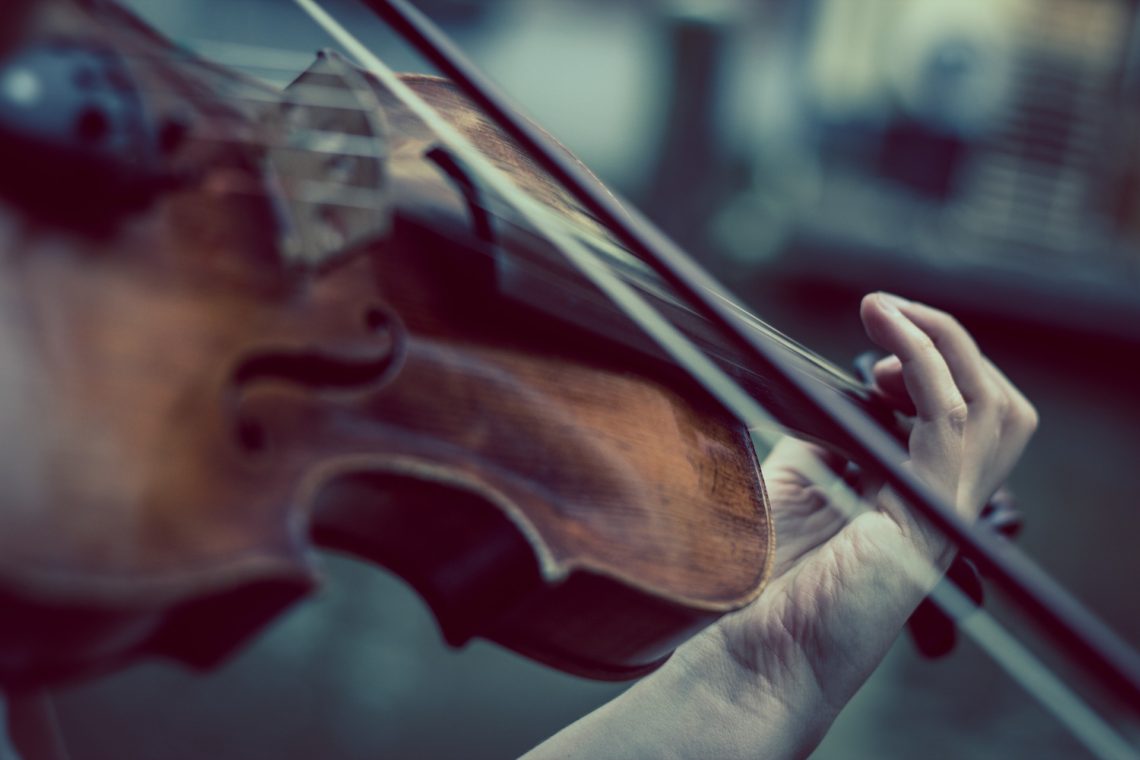A few days after I had a blow-up with my violin teacher, got kicked out of my community orchestra and swore to myself that I would never, never, never ever pick up a violin again, my brother told me he was getting married and asked me to play at his wedding. Whether he was unaware of my musical predicament or chose to ignore it, I have no way of telling. What I can tell you, though, is that I’ve never been able to say no to my little bro. And after all, who said that agreeing to play would mean that I really had to play? The engagement might break off. These things do happen. However, a year later, my brother was still engaged and I still hadn’t picked up a violin so I began to panic. I had only a bit more than three months to go until the wedding and as desperate times call for desperate measures, I decided to try something I’d never tried before: I was going to engage in a 100-day practice challenge.
If you engage in a practice challenge, you first of all have to define what you mean by practice. I decided that for my purposes, I was going to aim for 1,5 of practice every day and that practice meant working on all three of these things: scales, etudes and repertoire. If I was exhausted after an hour, it would still count and on days that were especially busy, I’d get away with 45 minutes. If I had absolutely no time to pick up the violin I was going to get up an hour early. While that method might sound admirably motivated, I realized very quickly that it came with strings attached when my colleague found my crying into my coffee one afternoon because I had run out of milk and said, ‘Please don’t get up early again tomorrow!’ Also, during my practice, I would not be allowed to do anything but play and sip water and the occasional coffee as long as I had prepared the coffee beforehand. And I was very hard on myself. I remember one particularly hot and sweaty practice session I had to undergo because I had been too lazy to chance into clothes more appropriate for the weather before beginning to practice.
The mean thing about the practice challenge is that there are basically no loopholes that would give you a day off. Suzuki himself is very clear on that point when he says that you only have to practice on the days that you eat. I fervently tried to stick to that rule, but still had to miss two days because I was so sick that I could not even keep myself upright. In case you are wondering: yes, I did eat on those two days. Fortunately, I am living in an environment where working while you’re sick is not only considered stupid, but completely irresponsible towards yourself and your colleagues. Nevertheless, there were a couple of days when I did not feel really well, but nevertheless picked up the violin and found that practice can be a rewarding experience even if you’re tired or have a headache. More importantly, this kind of practice can be extremely valuable. It was on a day where my whole body was screaming for me to lie down as I had basically had no energy left after a much longer than average workday that I found out that changes of position are super easy of you don’t try to plane down the fingerboard with your finger.
In order to get the maximum out of my practice, I also read a couple of manuals. Basically, all of them tell you learn most if you go to the ‘sweet spot’. That sounds complicated but I soon found out that it’s just code for ‘you have to go where it hurts and stay there’ and that the sweet spot was most easily recognized by the all-encompassing hatred against the world and everything in it. However, if you managed to just keep going, the magic would happen. When things were about to become unbearable and I was ready to smash my violin and entrust my body to the depths of the Danube I’d usually get into the zone, where there was no more pain, just lovely emptiness. And then, things would start to work. For the first few weeks, I managed to keep going without seeing any noticeable improvement in my playing, but when we had our first rehearsal for our brother’s wedding, I saw that things had changed tremendously. Not only was I much less nervous than usual, but when someone put music in bass clef in front of me and on top of that asked me to transpose them, I did so without batting an eyelid. Things had changed indeed.
As time wore on, it became much easier to pick up the violin, but it also become much harder to keep it in my hands. By the end of the practice challenge, I was so exhausted that I barely managed to put in 45 minutes of low-quality fiddling that probably did more harm than good. I very much anticipated my final practice session. In fact, I had even planned a little celebration. But one day, I noticed that I had missed my final day and had in fact been engaged in the challenge for 103 days. The moment I noticed that, I sat down, put the violin away and turned on the TV. I had earned this. In case you are wondering, I have decided to engage in another practice challenge. However, I have decided to allow myself practice-free Sundays, not only because I need a day to relax, but also because I think it’s far preferable to start challenges you actually stand a chance of winning.



